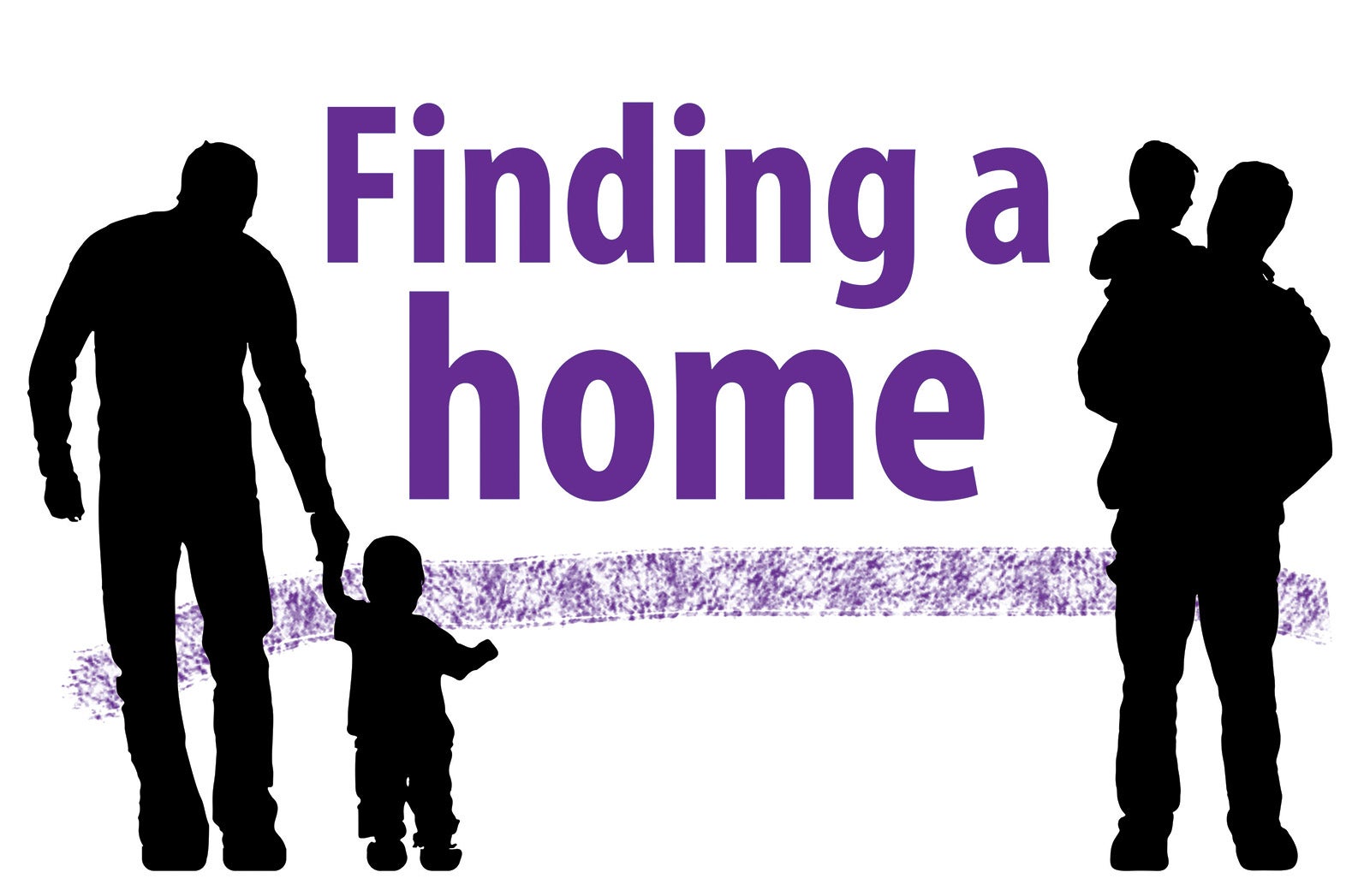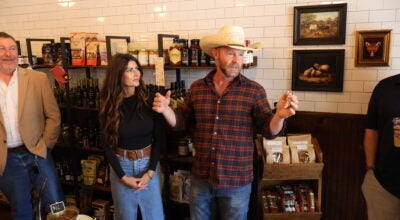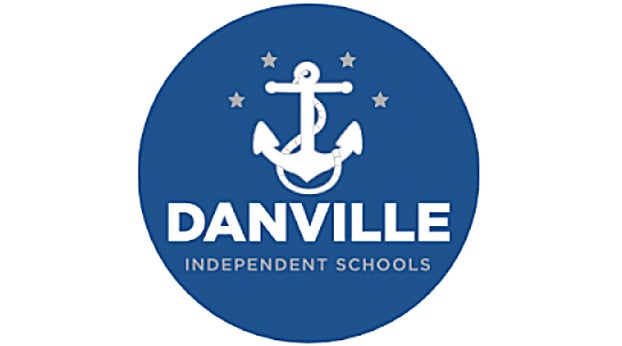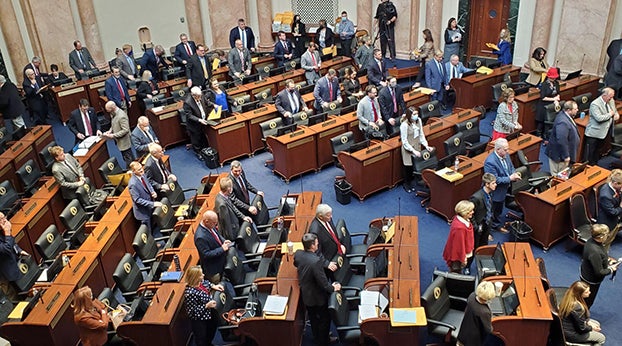Adopted children have painful pasts, but new families have given them stability
Published 10:25 am Saturday, December 9, 2017
Editor’s note: This is the fourth in a four-part series by Olivia Talbott looking at the need for foster care and adoption in central Kentucky and what it’s like for foster and adoptive parents and children. In order to protect the privacy of children in the foster system and their biological parents, the names of the adopted children quoted in this story have been changed.
By OLIVIA TALBOTT
Contributing writer
Imagine for a moment being a child and losing everything that makes up your life: your room, your toys, your siblings, your parents and even your last name. Then imagine gaining a new room, new toys, new siblings, new parents and ultimately a new last name.
It may seem unreal to those who have never experienced it. But some children in the foster and adoptive systems experience this cycle repeatedly until permanency; for others, it never ends.
Here are a few of their stories.
Natty
“I remember whenever I came home from school, there was always a long walk from the bus stop,” Natty said. “I got transferred from a few different Kindergartens.”
She doesn’t remember a lot about his history in different foster homes — “I remember moving to different homes a lot, though.”
Natty is 10 years old and is very articulate about her experiences as a foster child.
“I remember my birth mom had red hair and freckles and my dad had light hair and was tall,” she said.
“They did fight a lot,” she added. “But they were still nice.”
“Sometimes I miss my mom a lot,” she said. “… My family didn’t have that much money. All’s we ate was canned food.”
Before being placed in foster care, Natty had lived in at least five different relative’s homes, according to her adoptive mom.
“I remember my second home,” she said. “My birth mom tricked me and said we were going to get ice cream.”
But instead, her biological mother planned to leave her in the care of a relative, she said.
“She stayed with me so I would get used to it,” but then her mother left her permanently.
Natty was 3 the last time she saw her parents. She was ultimately removed from the custody of her biological family due to neglect and substance abuse and placed into foster care.
Natty can tell you stories of being beaten with a belt and submerged underwater for long periods of time, according to her adoptive mother.
But once she was removed from her parent’s custody, the constant movement didn’t go away.
Natty said she “became a part” of her first foster family — “for a little bit,” she added.
Processing the change, the constant movement and the lack of stability, became a reality for her.
“I got to see my [biological] brother sometimes,” she said. “Sometimes it’s hard to be separated.”
But the movement did eventually stop — she moved in with her adoptive parents and her family became permanent for the first time. She remembers her happiest day as the day she got adopted.
“I was pretty excited because my (biological) brother, my (adoptive) grandparents and a lot of friends came and we had a party,” Natty said. “I felt really special.”
“Adoption means that (my adoptive parents) won’t bring me back to the court any more,” she said. “They could keep me,” she added.
According to Natty, she would like to adopt a foster child one day herself.
“I would know how they feel,” she said. “It would be nice to have a kid that doesn’t have a family.”
“I think they might feel happy because they are getting one,” she added.
Andrew
“I was with my stepdad,” Andrew recalls. “And he was making meth. There were lots of drugs.”
Andrew is a 17-year-old whose earliest memories consist of drugs, abuse and R-rated movies.
“I remember eating plain sugar and drinking soda for dinner,” he said. “Living that type of life doesn’t really hit you until you get a little older. It conditions you.”
Drugs led to him being removed from the home.
“My step-dad got caught with a meth lab in the car,” he said. “Then my sister and I were taken away.”
Andrew was separated from his younger sister and was moved twice within a short period of time.
“I stayed at the first place a couple of weeks and they were really nice,” he said. “I don’t think I was moved because they wanted me to, but because they were a temporary place.”
“When I was that young,” he noted, “it didn’t phase me as much. I was really angry, though. I don’t really remember why, just always angry.”
“I remember I threw temper tantrums and was really violent,” he said.
“I would refuse to call anyone other than my (biological) mom by that name.”
At 5 years old, Andrew and his sister were adopted into the same family, gaining a new family as well as new last names.
“Like every foster child, you hope that your parents do whatever they can to get you back,” Andrew said. “You always want to believe that they will do what they need to.”
“They tell you that they love you,” he added. “But if they did, then they would do what they were supposed to. Instead, they sign over their rights, saying ‘we love you’ and then go back to drugs and other stuff.”
He said he’s legally allowed to contact his biological parents today, “but I don’t have any desire to do that.”
“I’ve learned to move on and just roll with it,” he said.
Today, Andrew is exploring his options for college. He says he’s not allowing his past to dictate his future.
Missy
“They never believe that I am adopted,” Missy said on the reaction that she typically gets from others when they learn of her past. “Then they have all of these questions.”
Missy is now a high school student who was adopted as a 3-year-old along with her older step-brother.
“Young foster children are smarter than most people think,” she said. “I feel like they are stereotyped, but they’re really smart.”
According to her, even young foster children know much more about their situation than people would like to believe.
“Sometimes foster kids are traumatized,” Missy said. “I guess they’re hurt. Their moms did drugs and inside they’re messed up, even though they aren’t on the outside.”
She said temper tantrums are a common occurrence for foster children.
“Some days, they’ll be fine; then the next day they will be upset,” she said.
Foster children can also easily attach themselves to parental figures, according to Missy.
“You know those little ducks that follow anyone around and call them mom?” she asked. “I guess I was like that. I would call every motherly figure ‘mom.’ I don’t know why.”
Missy said there are some members of her adoptive parents’ extended family she doesn’t get along great with.
“… they aren’t very open minded. I feel like we don’t really connect, because they’re kind of stuck up,” she said. “… There’s just a different connection there.”
But Missy said she feels loved and accepted by her adoptive parents and her brother, which makes up for it.
Missy is unsure if she would like to foster when she is older.
“As a kid I enjoy it, but sometimes it’s a bit extra and exhausting,” she said. “I think it’s always a good thing to be open-minded about it though.”
“I don’t want to be lonely with only Marley for company,” she added, referring to the dog in her lap.
“It’s always good to be a part of a family,” she said.
Hannah
“I was 6 years old when I was sent to foster care,” Hannah said. “In the first four months, I was in six different foster homes.”
She said her oldest sister “had lots of anger” because of being in foster care.
“They didn’t want to separate us, so they kept moving us around,” she said. “I was okay with it. I hated moving, but didn’t want to be without her.”
“It was scary going to a new place, not knowing who we were going to be with,” she said.
For Hannah, the uncertainty of foster care only mirrored her past.
“I was first sent to foster care because of my Mom’s alcoholism and neglect,” she said.
Her mother had had nine children in all, but only the six youngest were eligible to be placed in foster care.
“I lived with the Smith family for almost a year,” Hannah said. “Then I went to live with my birth mother again.”
She was excited to live with her mother again, but “it only lasted a month.”
“I think she was overwhelmed by all of her children and she still had to go to AA meetings and stuff,” she said. “So she left us with relatives.”
Hannah stayed with her biological grandmother for a month, then was moved to her biological aunt and uncle’s home.
“I was scared and angry,” she said. “The relatives I lived with were abusive to me and my little brother.”
“I did everything to protect him,” she added. “Eventually my birth mother called (a social worker) and had us put back in foster care. The abuse was never reported (to the social worker).”
Hannah and her siblings were again placed in foster care, but they were split amongst different foster families this time.
“My mom’s parental rights were terminated, so we knew that we would never live with her again,” she said. “Not being able to see my other birth siblings was the hardest part,” she added. “But not everyone wants to adopt six kids.”
“The Smith’s said no to my oldest sister because of her anger problem,” Hannah said. “They thought she might be better off being adopted as an only child.”
Hannah explained that her oldest sister was placed in 10 different foster homes before she was adopted, shortly before aging out of the foster care program.
“We lived with the Smith family for quite some time,” Hannah said. “So at first I didn’t know I was being adopted. Then they asked us if we wanted to be adopted. My little brother didn’t even let them finish talking before he immediately said yes.”
“Honestly, I was hesitant though,” she added. “I wanted to be adopted because I knew I wasn’t going to live with my birth mother anymore, but another part of me hoped that maybe she would get another chance.
“I still said yes that day, though.”
According to Hannah, she has been in touch with her biological mother, but that has produced “mixed feelings.”
“I forgive her and I told her I forgave her,” she said. “But it’s still hard to have a relationship.”
Before being adopted at age 9 with the changing of her last name, Hannah made a special request of her adoptive parents.
“I asked them if I could change my first name too,” Hannah said. “They didn’t know me as a baby, and I wanted them to help me pick out a new name.
“I was happy that I finally belonged to a family.”
Today Hannah is pursuing a career as a social worker, with the goal of working in foster care. She also plans on being a foster parent one day.







